Running: China's new religion
Updated: 2016-11-11 12:34
By Zhang Kun in Shanghai(China Daily USA)
|
|||||||||
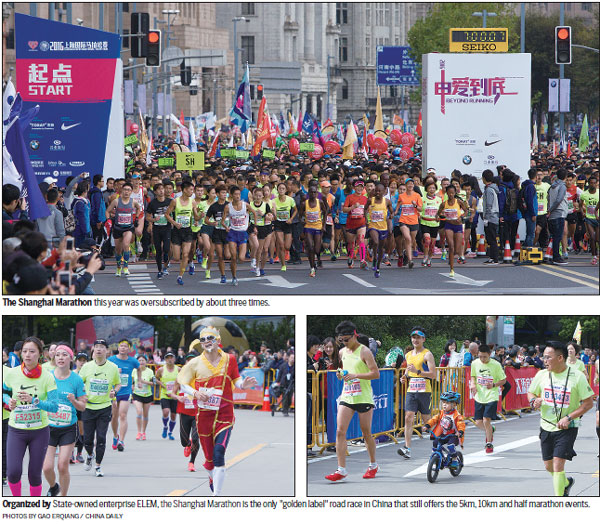
Large scale road races such as the Shanghai Marathon are fast growing in popularity in China, with the past few editions seeing hundreds of thousands of avid runners competing - not for the top prize, but a coveted spot in the event
The running craze can be said to have reached fever pitch in China. In fact, Chinese today love to run so much that hundreds of them even went to the expense of taking a flight across the Pacific Ocean to participate in the New York Marathon on Nov 6.
The more than 20 road race events that took place on that very same day in China was yet another affirmation of running's growing popularity.
According to statistics from the China Athletic Association, there were 294 marathon events held in the country this year, more than double last year's total of 132. Statistics also show that a growing number of Chinese are traveling overseas to compete in marathons as well. More than 2,000 Chinese are set to participate in the race in Athens later this month while more than 600 turned up for the Tokyo Marathon held earlier this year in February.
"It is a natural occurrence following China's economic development. People are now demanding for better healthcare and lifestyles," said Jenny Zhou, general manager of Shanghai East Best & Lansheng Event Management Co. Ltd (ELEM).
"Many sports organizers in the world have also witnessed the great potential of China's sport market. There have been a growing number of overseas tourism packages involving marathon running too," added Zhou.
This year, the Oct 31 Shanghai Marathon - this road race has been taking place every year since 1996 - saw some 38,000 athletes in attendance, including 6,256 foreigners from 85 countries and regions. The 42.195-kilometer route started from the Bund and took runners through places such as Nanjing Road, Huaihai Road and Longteng Avenue, before culminating at Shanghai Stadium.
In another indication of running's rising popularity among the masses, the Shanghai Marathon has for the past few years been oversubscribed to the extent that organizers had to resort to balloting instead of selling tickets on a first-come-first-serve basis. This year, around 150,000 people signed up for the race, meaning that at least 112,000 people were left disappointed about their exclusion.
This craze has inherently spawned scores of running clubs around the country and a deluge of information such as the science behind running has been shared among countless online communities in China.
Night Runners, a Shanghai-based group which first started as an online radio program about running, now has more than 200 members and organizes weekly training sessions.
"Some took up running because they wanted to lose some weight. It was easy - there is no need for a special venue or equipment to run. Even after members attain their desired weights, they continue to spur themselves on to achieve more, to set personal bests," said Yvonne Ding, the leader of the club.
"I first started running because I was in low spirits and poor health and wanted to do something about my fatty liver," said Qian, a three-time marathon runner.
"Running has also introduced me to strength training and a nutritional diet, helping me develop a greater understanding of my own body. I am more passionate and focused today because of running," added Qian.
For more than 10 years since its inception in 1996, the Shanghai Marathon was organized by the Shanghai Athletic Association, which is affiliated to the Shanghai Sports Bureau, with logistical support provided by more than 20 municipal administrations and institutions. Stated-owned enterprise ELEM was then founded with the goal of enhancing the efficiency and effectiveness of the organizing. The company, which was in 2014 appointed as the official organizer for the Shanghai Marathon, also hosts a number of other road races in the city.
Larry Qian, who has taken part in the last three editions of the Shanghai Marathon, said that ELEM's takeover of the organizing duties has been a boon to runners.
"From pre-race tips sent through text messages, to the water and other supplies along the track, there has been a noticeable improvement in the race over the past years," said the 30-year-old.
"My timings have also improved over the years but my ranking has actually been dropping. This is because the fitness levels of the runners and the quality of the competition field has been steadily rising," he added.
Zhou attributed the marathon's success to the strong support ELEM has received from the authorities, noting that an event of such a scale is a test for a city's urban administration that can only be completed with the joint efforts of many agencies such as traffic, healthcare, environment and security.
But the Shanghai Marathon is much more than just a sporting event. According to professor Xiao Huanyu at the Shanghai University of Sport, the road race also reflects a city's state of development and civilization.
"Running can help to bring more attention to environmental issues, such as garbage disposal and water and air pollution because athletes get to know the city with each step they take," said Xiao.
The 42.195-kilometer route of the Shanghai Marathon covers three districts: Huangpu, Jing'an and Xuhui. Up to five years ago, many of the city's residents would complain about the inconvenience that the multiple street closures brought. Today, however, the Shanghai Marathon has managed to become a form of bonding for the city's occupants.
Apart from the significant increase in spectators along the race route, groups of middle-aged women who exercise daily in the early morning have over the past few years been putting up special dance routines along the race route. Brass bands from local middle schools have also taken to the streets to perform, while some residents have even set up tables along the side of the roads to provide water and refreshments for runners.
The road races in Beijing, Shanghai and Xiamen are the only ones with the prestigious "golden labels" awarded by the International Association of Athletic Federation. Shanghai is the only city among the three that still offers the 5km, 10km and half marathon events, and Zhou said that this was down to ELEM's commitment to engaging runners of all levels and encouraging beginners to take part.
But rising alongside marathon running's popularity is also a growing concern of the health risks of such activities. An essay titled Chinese Marathon, a Carnival of Ignorance Driven by Commercial Motivations that is currently going viral on China's social media platform WeChat claims that "only very few runners are actually suitable for marathon running" and that too many people in China are taking part in the full marathon events without undergoing proper training.
According to Zhou, one out of 5,000 runners suffers from a cardiac arrest in marathon races all over the world. To cater to such emergencies, ELEM deploys a host of medical staff at various points along the route and has first-aid responders running together with the crowd.
In order to avoid suffering injury or serious medical conditions during the race, Zhou said it is imperative that runners train sufficiently, wear the appropriate clothing and shoes, as well as consume a nutritional diet in the lead up to the event.
zhangkun@chinadaily.com.cn
- Online shopping frenzy sparks trash concern
- Is it a thing? 10 odd jobs where you can make good money
- Message on a bottle: Mineral water company launches drive to find missing children
- Snow leopards caught on camera
- A foreigner's guide to Singles Day shopping spree
- China jails 49 for catastrophic Tianjin warehouse blasts
- Americans want to change presidential election system
- UK business calls for exclusive visa system for post-Brexit London
- Australia poised to sign refugee deal with United States: media
- Philippines' Duterte says he is against 2014 defense pact with US
- S.Africa wants to work with US in promoting peace: Zuma
- Trump's victory on global pages

 Alibaba breaks sales record on Singles Day
Alibaba breaks sales record on Singles Day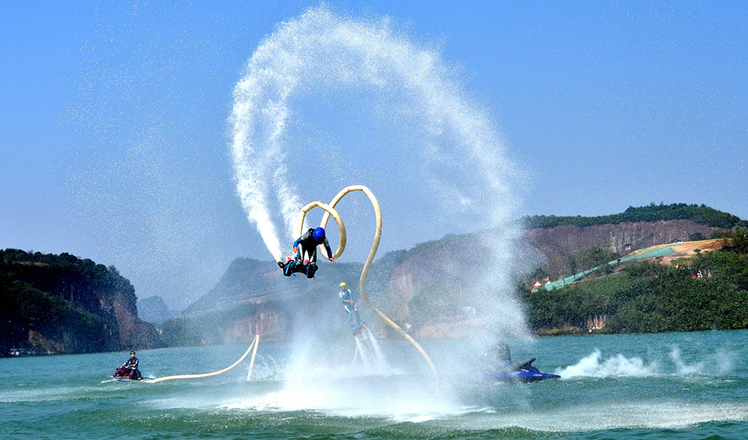
 Ten photos from around China: Nov 4-10
Ten photos from around China: Nov 4-10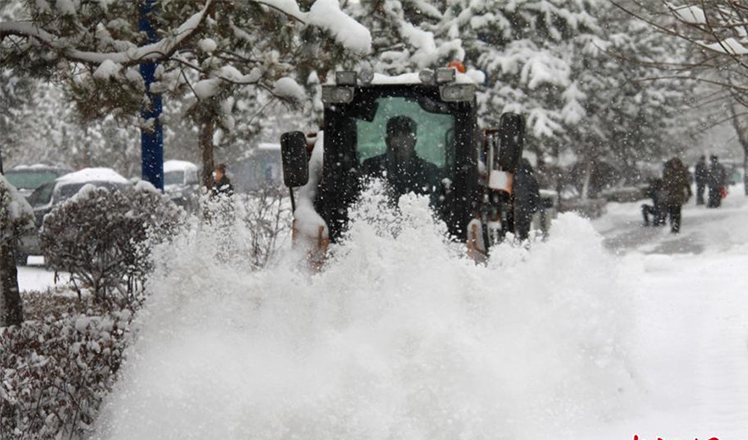
 Snow storm hits Xinjiang
Snow storm hits Xinjiang
 Clinton concedes election, urges open mind on Trump
Clinton concedes election, urges open mind on Trump
 Places to enjoy golden gingko tree leaves
Places to enjoy golden gingko tree leaves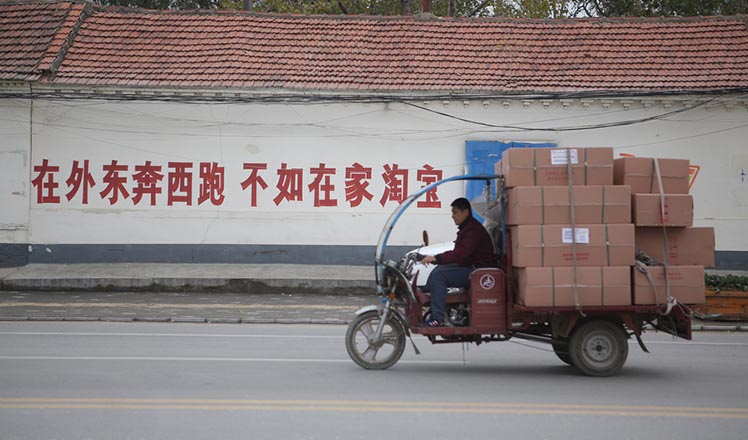
 Taobao village gets ready for shopping spree on 11/11
Taobao village gets ready for shopping spree on 11/11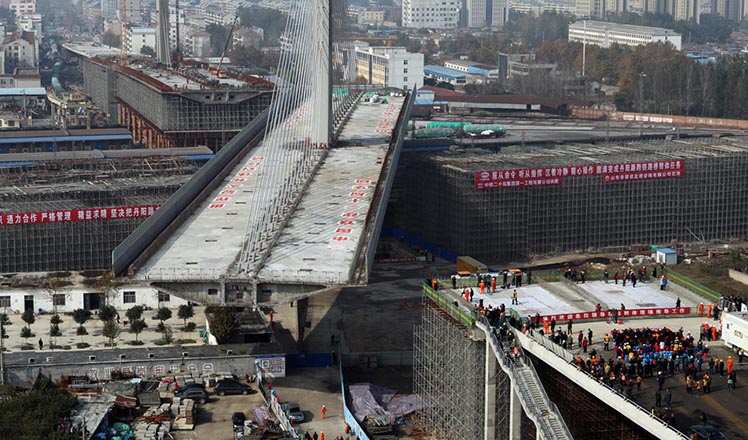
 Overhead bridge rotated in East China's Shandong
Overhead bridge rotated in East China's Shandong
 The 75th anniversary of Red Square parade celebrated
The 75th anniversary of Red Square parade celebrated
Most Viewed
Editor's Picks

|

|

|

|

|

|
Today's Top News
No environmental shortcuts
US election rhetoric unlikely to foreshadow future US-China relations
'Zero Hunger Run' held in Rome
Trump outlines anti-terror plan, proposing extreme vetting for immigrants
Phelps puts spotlight on cupping
US launches airstrikes against IS targets in Libya's Sirte
Ministry slams US-Korean THAAD deployment
Two police officers shot at protest in Dallas
US Weekly

|

|









